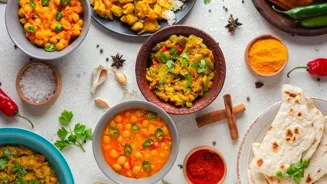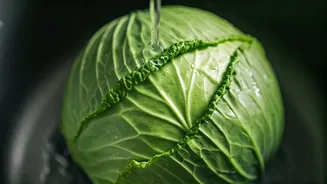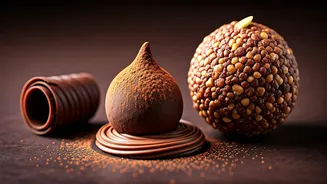Discover 10 Spices That Will Elevate Your Cooking Skills! Unleash your inner chef with these essential spices
India is known as the land of spices, and for good reason! Our kitchens are treasure troves,
filled with aromatic powders and seeds that can elevate any dish from simple to spectacular. But with so many options, it can be overwhelming to know where to start.
Fret not, because we're here to guide you through 10 essential spices that every Indian cook should have in their pantry. These spices aren't just about adding flavour; they're about adding depth, complexity, and a touch of magic to your vegetarian cooking. Get ready to unleash your inner chef!
Turmeric: a versatile spice with myriad health benefits and culinary uses
First up, we have turmeric, or haldi as we lovingly call it. This golden spice is more than just a colourant; it's a powerhouse of health benefits, thanks to its active compound, curcumin.
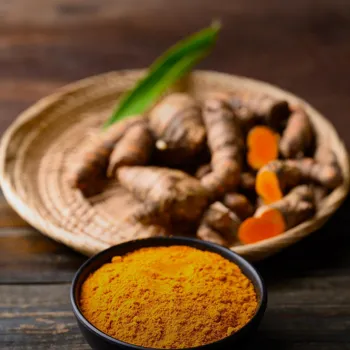
A pinch of turmeric added to your dals and vegetable curries not only imparts a vibrant yellow hue but also adds a subtle earthy flavour. Don't forget to add a dash of black pepper along with turmeric, as it enhances the absorption of curcumin in your body.
You can also use turmeric in marinades for paneer or tofu before grilling or baking for a delightful flavour and colour. Beyond cooking, turmeric is a staple in traditional home remedies for its anti-inflammatory and antiseptic properties.
A warm glass of turmeric milk, known as haldi doodh, is a comforting drink to soothe a sore throat or boost immunity. Turmeric truly is a spice that works wonders both in the kitchen and for your well-being.
Its gentle flavour makes it a versatile ingredient for countless recipes and is easily available across the country from the vendor near you.
Cumin: versatile spice for depth and flavor in dishes
Next, we have cumin, or jeera, a humble but mighty spice. Whether used whole or ground, cumin adds a warm, earthy, and slightly bitter flavour to dishes. Tempering whole cumin seeds in oil at the beginning of cooking releases their aroma and infuses the entire dish with its essence.
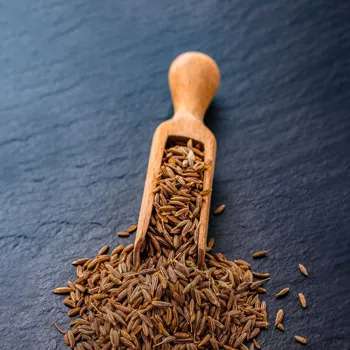
Ground cumin is a key ingredient in many spice blends like garam masala and chana masala. It pairs beautifully with pulses, vegetables, and yogurt-based dishes. Try roasting cumin seeds before grinding them to enhance their flavour even further.
Roasted cumin powder can be sprinkled over raita or used as a seasoning for roasted vegetables. Cumin is also known for its digestive properties, making it a valuable addition to meals. A simple glass of jeera water after a heavy meal can aid digestion and prevent bloating.
Cumin is a versatile spice that adds depth and complexity to any vegetarian dish. Its fragrant aroma is enough to make any mouth water.
Coriander: versatile spice with citrusy flavor, cooling properties
Coriander, or dhania, is another essential spice in the Indian kitchen. Used both as whole seeds and as a ground powder, coriander boasts a bright, citrusy flavour with a hint of sweetness.
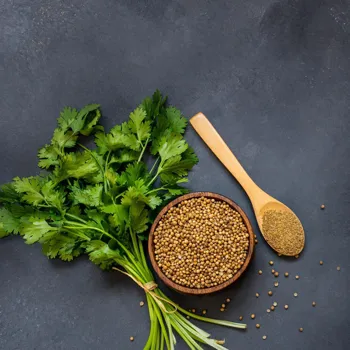
Coriander seeds are often roasted and ground to make dhania powder, a staple in curries, dals, and vegetable dishes. Fresh coriander leaves, or cilantro, are used as a garnish to add a burst of freshness and flavour to any dish.
They are especially delicious sprinkled over sambar, rasam, and chutneys. Coriander is also a key ingredient in many spice blends, adding a subtle sweetness and aroma. In addition to its culinary uses, coriander is known for its cooling properties.
Coriander seeds can be soaked in water overnight and consumed in the morning to help cool the body and aid digestion. Coriander is a versatile spice that adds both flavour and aroma to any vegetarian dish, making it a must-have in your spice rack.
Mustard seeds add pungent flavor and aroma to dishes, popular in Indian cuisine
Mustard seeds, or rai, are small but packed with flavour. Black mustard seeds are the most commonly used in Indian cooking, and they add a pungent, nutty, and slightly bitter flavour to dishes.
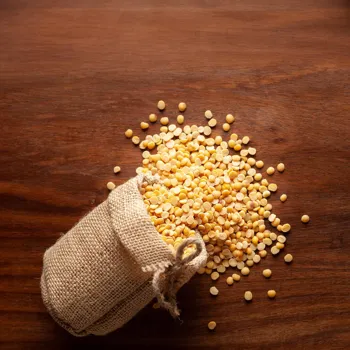
Tempering mustard seeds in hot oil is a common technique in South Indian cuisine, where they are used to flavour lentil soups, vegetable stir-fries, and chutneys. When heated in oil, mustard seeds pop and release their aroma, infusing the entire dish with their unique flavour.
Mustard seeds are also used to make mustard oil, which is commonly used in Bengali cuisine. Mustard oil has a strong, pungent flavour and is used to cook vegetables, fish, and meat. In addition to their culinary uses, mustard seeds are also known for their medicinal properties.
They are said to help relieve muscle pain and improve circulation. Mustard seeds are a versatile spice that adds a unique flavour and aroma to any vegetarian dish.
Ginger adds flavor and health benefits to dishes, commonly used in Indian cooking
Ginger, or adrak, is a rhizome that adds a warm, spicy, and slightly sweet flavour to dishes. Fresh ginger is commonly used in Indian cooking, and it can be grated, minced, or julienned and added to curries, dals, and stir-fries.

Ginger is also used to make ginger-garlic paste, a staple ingredient in many Indian recipes. Ginger tea is a popular remedy for colds and flu, and it can also help soothe nausea. Dried ginger powder, or sonth, is also used in Indian cooking, and it has a more intense flavour than fresh ginger.
Ginger is a versatile spice that adds both flavour and health benefits to any vegetarian dish. Its warming properties make it a valuable addition to meals, especially during the colder months, adding a much-needed zest to any dish and revitalizing your taste buds.
Garlic: essential in Indian cuisine, adds flavor and health benefits
Garlic, or lehsun, is another essential ingredient in Indian cooking, adding a pungent, savoury, and slightly sweet flavour to dishes. Fresh garlic is commonly used in Indian recipes, and it can be minced, crushed, or sliced and added to curries, dals, and stir-fries.
Garlic is also used to make ginger-garlic paste, a staple ingredient in many Indian homes. Garlic-infused oil is another popular ingredient and adds a rich flavour to any dish. In addition to its culinary uses, garlic is known for its medicinal properties.
In fact, there are multiple studies that have shown that garlic can reduce the risk of heart disease. Garlic truly is a versatile ingredient that adds a unique layer of flavour to any vegetarian dish, while also promoting good health.
AI Generated Content. Glance/InMobi shall have no liability for the content